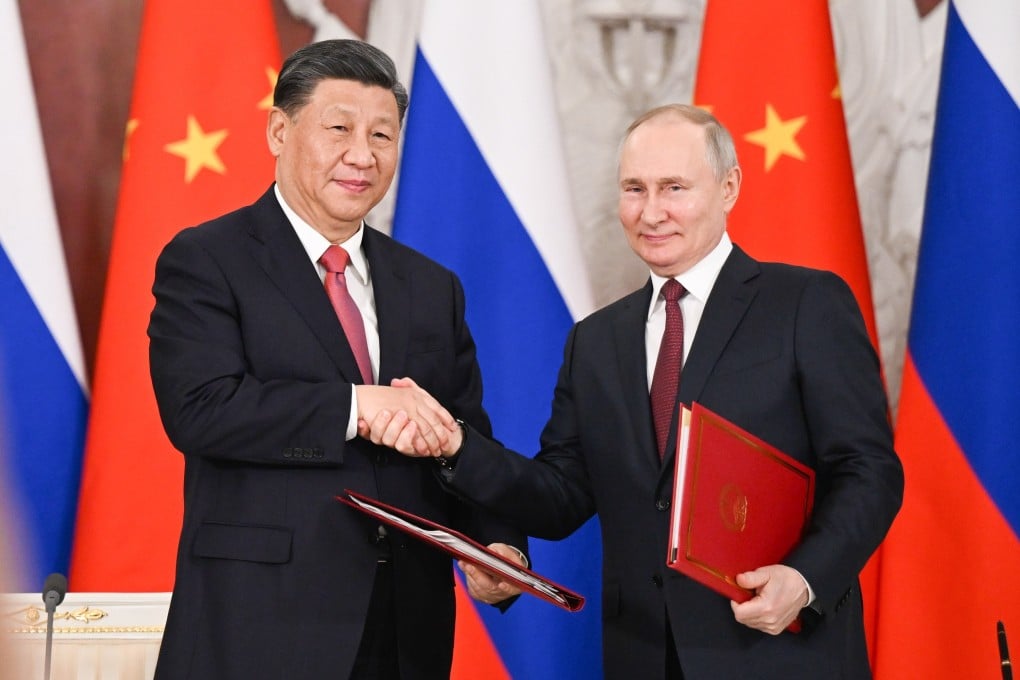Advertisement
China, Russia turn up the heat on US after Xi, Putin meet in Moscow
- US bio-military and nuclear activities raise ‘serious concerns’ about security of other nations, joint statement says
- ‘Great support for Russia’ comes as China looks to counter US pressure in global narrative war, analyst notes
Reading Time:2 minutes
Why you can trust SCMP
99+

China and Russia have voiced “serious concerns” about US nuclear weapons and bio-military activities, as the close strategic partners try to build a moral high ground in the narrative battle with the West.
The United States’ bio-military activities, both at home and overseas, were damaging the security of the countries concerned, China and Russia said in a joint statement after presidents Xi Jinping and Vladimir Putin met in Moscow on Tuesday.
Expressing “serious concerns” about the security of relevant regions, the statement requested that the US clarify its position in this regard and refrain from actions that violate the Biological Weapons Convention.
Advertisement
It also pressed the US and close Asian ally Japan to step up their efforts to destroy chemical weapons.
“The two sides urge the United States, as the only state party that has not completed the destruction of its chemical weapons, to expedite the destruction of its stockpile and Japan to complete the destruction of its abandoned chemical weapons in China as soon as possible,” the statement said, in a reference to Japanese troops’ retreat from China at the end of World War II.
The nuclear-armed neighbours also called on the world to “effectively reduce the risk of nuclear war”.
Advertisement
Select Voice
Choose your listening speed
Get through articles 2x faster
1.25x
250 WPM
Slow
Average
Fast
1.25x
